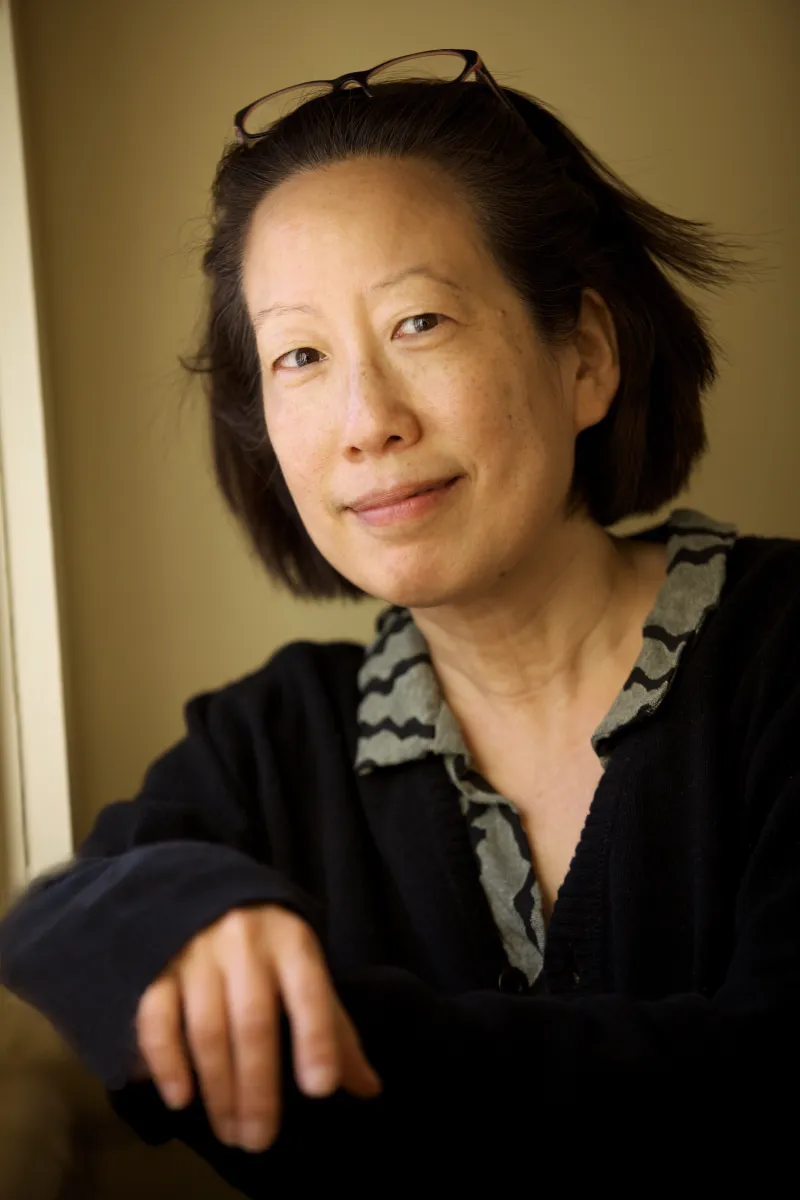The aging father who wants to feel wise again. The quiet girl who challenges the athletic, wealthy, confident alpha with her calm brilliance. The family that prefers the warmth of sweaters and cuddles over their futuristic home heating system. These are the characters whose lives Gish Jen shared with her audience at Encina Hall. While she read, she smiled as the audience caught the wry humor and astute observations in her short stories and upcoming-novel excerpt.
Each year the Lane Lecture Series, facilitated by Stanford’s creative writing program, invites a number of writers to speak about their work. Gish Jen, the first of this school year’s guest speakers, has authored seven books and received Guggenheim, Radcliffe, and National Endowment of the Arts fellowships. She briefly attended the Stanford Graduate School of Business after completing her undergraduate degree at Harvard. Her fiction focuses primarily on the nuances of the Asian American experience, although her recent book, “The Girl at the Baggage Claim,” is a nonfiction examination of the East-West culture gap.
Eavan Boland, director of the creative writing program, believes that Jen’s writing explores some of the biggest questions of our era — who truly belongs? What does it mean to be an outsider? “Those are questions that have to go to the very core of building a self, and a community or a society or a country … Gish Jen has been known as a very distinguished Asian American writer, but her work speaks to people beyond that,” said Boland.
Jen herself believes that it is, in fact, critical for audiences to read about perspectives different from their own. “I don’t think there’s anything about any experience that’s just so hard to fathom that nobody, no matter how much work they put into it, could understand it,” she said.
Growing up, she often found herself suspended between experiences and perspectives in her own life — the disparities between Eastern and Western cultures, between independent and interdependent thought and between practicality and passion in her studies. She fell in love with writing in college but couldn’t see herself making a future of it. “I’m the daughter of Chinese immigrants. After all they’d gone through, people like me did not become poets,” she said.
It wasn’t until others had started noticing her faculty with words that she seriously began to think about writing. She reminisces about a critical experience in her early writing career, when the professor of her first-ever poetry course pointed out her talents to her.
“The professor was Robert Fitzgerald, the eminent translator, and he was the first one who sat me down and asked, ‘Why are you pre-med? You should really think about doing something with words,” she said.
Even then, she didn’t completely internalize these truths. “I never imagined myself signing books, and I certainly never imagined anyone taking pictures of me or giving me an interview or anything like that. I think I just imagined, maybe I’d write a story, or two,” Jen recalls. But she found herself drawn to writing anyway. During her time at Stanford, she said, she “spent all [her] time in the creative writing department.”
Even now, after having “made it,” she remains undeniably humble, working to expand her fiction beyond the scope of her own experience. She spent countless hours researching the experiences of Cambodian Americans for her 2010 novel “World and Town.” She comments, “I think it’s actually critical for writers to write from perspectives other than their own. That said, I think that writers need to do their homework … It’s important to think how they would feel coming upon what you wrote about them.”
Jen doesn’t deny that this process — and the process of crafting fiction — is hard, subtle and even agonizing. Indeed, her willingness to embrace discomfort is evident to her readers. Boland remarks, “There are no easy subjects in Gish Jen’s work.”
This is, perhaps, what makes Jen’s writing so relevant and resounding. She has chosen to tackle the issues of exclusion in society, inter-generational complexities, tensions between minorities, reconciliation with one’s own identities and much, much more. Her audience eagerly awaits her next work, anticipating the challenge it will bring.
Contact Angela Yang at ayang22 ‘at’ stanford.edu.
